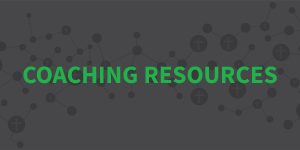Consider Intangibles

Certificates, budgets, and marketing plans are all important aspects of your coaching practice. They take time, money, and effort to produce. You know you’ve got them in order because you can pull them out, look at them, adjust as necessary. But there are some aspects of your coaching practice that are harder to prove—and take more effort to improve. But having things like credibility, respect, and confidence in place can make all the difference in the world.
Every once in a while, examine the intangibles that affect your business. Here are some questions to help.
- In what ways am I working to prove myself as trustworthy?
- How do my own life and business practices reflect what I am selling?
- What steps can I take to increase my confidence in my coaching ability?
Consider NONessentials
Many of the following are commonly viewed as essentials rather than non-essentials. Most aspiring leaders who want to launch a coaching practice believe they must have these things before they get their business going. In fact, these are not necessary in the early stages of your coaching practice.
For instance, a website can supplement your marketing efforts but should not be viewed as a magnet for new clients. This is building-off the misconception of the “Build it and they will come mentality”. In reality, about 99.9% of your business will come through three types of people:
- People who you have had an impact on and who trust you
- Referral partners who know you and trust that you can deliver excellent coaching to a colleague or friend
- Once removed relationships, a friend who has told a friend that they trust about you
Notice I repeated the word “trust” in all three categories above. If you catch anything from this blog, catch this. You must earn the reputation of being a trustworthy resource to have a successful Christian coaching practice!
Start with the absolute minimum investment in these areas to meet the current or expected demand in your first 12-18 months. As your coaching practice grows, consider the pros and cons of raising your budget in each area.
So what are these nonessentials?
- Website
- Blog
- Business cards
- Brochures
- Books
- Gear with your logo
- Did I mention an attractive, cool, high-performance website?
Should you give more time and effort to these areas?
Here are some questions to help you consider the benefits of increasing (or even continuing) your investment in these nonessentials.
- What have been the most effective marketing tools for my coaching practice? Why are these things effective?
- How are people engaging with the marketing resources I already offer?
- How much have I spent on each? What percent of my overall expenses does that represent? What is the return on my investment in these things?
- Where can I invest to offer the greatest impact and value for my clients and potential clients?

Goals & Objectives Skill Builder – Explore the process involved in setting overall strategy or targets to be achieved and then focus on the specific steps needed to set meaningful objectives and work towards your goals.
Goal Setting Storyboard – Storyboards provide a visual “line of sight” through the goal setting process.
Goal Setting Effectiveness Profile – Profiles seek to measure goal setting effectiveness in seven separate categories.
Coach Mentor – Seek a person who has been there and done it. I did this many years ago and probably saved me 10 years of hard discouraging work. And I did not quit!
Christian Coaching Essentials – Shameless plug on the best resource for Christian coaching. Read, digest and put into practice this comprehensive coaching process that is firmly established in Jesus Christ.
Cover Photo by Ono Kosuki
Photo by Sora Shimazaki